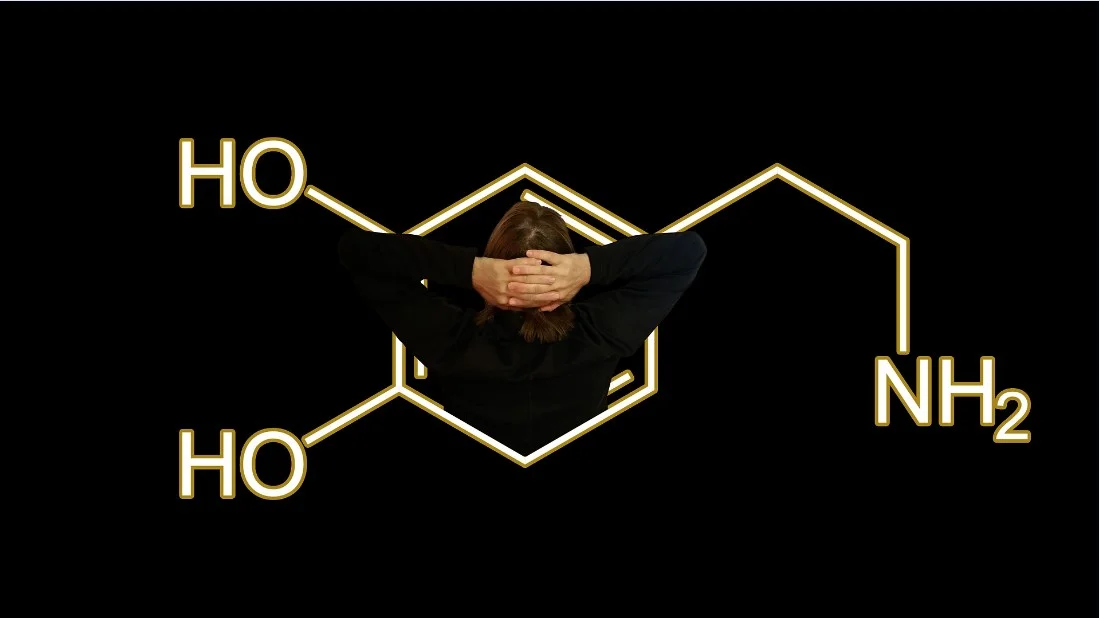Did you know there is more you can do to become happier than you are today? How about doing the same for your spouse, kids, and friends? Well, the secret lies in optimizing the 4 happy chemicals inside the brain.
Also called the feel-good hormones, the happy chemicals include dopamine, oxytocin, serotonin, and endorphins – DOSE.
These chemicals induce positive sensations such as pleasure, relief, excitement, bonding, trust, love, and general happiness.
When these chemicals are not released in the body, you and your loved ones are likely to succumb to depression, anxiety, anger issues, and lack of interest in life.
If you wish to maximize the benefits of the above hormones, you must watch what you eat and do, and improve your interactions with family, friends, and nature.
The Four Happy Chemicals in Detail:

Overall, hormones and neurotransmitters are the holy grail of body regulation and function. They are messenger molecules of sorts, charged with coordinating and controlling multiple organ functions.
Hormone levels will go up and down throughout the day to regulate numerous organ functions.
For example, the cortisol hormone is released in the morning to prepare the body for a bright new day, while melatonin is released early in the night to prepare the body for a good night’s sleep.
There are over a hundred hormones and neurotransmitters in the human body. Amidst the pack, four special ones are charged with keeping you happy.
1. Serotonin
Serotonin is a ‘feel-good’ hormone/neurotransmitter primarily found in the brain and the intestines. It is charged with boosting and regulating mood, emotions, digestion, and the human body clock.
It contributes to a feeling of well-being, general happiness, and is produced when you feel significant and important.
Serotonin also influences factors such as body stability and mobility, and states of mind such as sleep, memory, learning, and concentration.
Elsewhere, scientists believe it is crucial in regulating neurological disorders, blood clotting, and eye, bone, and heart health.
Lack of serotonin in your body will manifest in a bad mood, a feeling of loneliness, poor memory, poor learning abilities, and poor vision.
Insufficient levels of this hormone occur due to lifestyle, poor nutrition, and drug abuse.
To boost serotonin levels in the body, you need to do the following:
- expose the body to day time sunlight for at least 20 – 60 minutes – depending on your skin color
- engage in physical exercise
- prioritize meditation
- serve prebiotic and tryptophan diets
A prebiotic diet induces the growth of microorganisms, such as fungi and bacteria, which are necessary for digestive health.
The prebiotic diet includes vegetables such as onions, garlic, apples, green vegetables, bananas, oats, barley, and bean varieties.
A tryptophan diet is protein-based and includes eggs, milk, cheese, fish, seed varieties, nuts, soy, and poultry.
Lastly, cut down or completely eliminate stimulants such as Ecstasy, to ensure serotonin is produced in abundance.
2. Oxytocin
Oxytocin is a happy neurotransmitter released in the brain by the hypothalamus. It is commonly known as the cuddle hormone, the love hormone or bonding hormone.
Females generate more of the hormone than males, probably because it is associated with childbirth and breastfeeding. Its production spikes when the mother hugs the child regularly, to cement the mother-child bonding.
Oxytocin is also good for the nervous system, stress regulation, and healing the body from pain.
In a broad sense, oxytocin is a catalyzer of sorts for relationship traits such as bonding, trust, empathy, generosity, contentment, and security. High levels of the hormone may explain successful romantic relationships.
Unlike other hormones mentioned here, the amount of oxytocin in your body will be determined by the well-being of your personal life, your relationship with the family, and the community where you live. It has nothing to do with what you eat or your physical wellness!
For example, frequent cuddling, hugging, kissing, eye contact, communication, and sexual intimacy – including orgasm – contribute to optimal production of oxytocin in the body.
You can also meditate, spend time with friends, indulge in a massage, and sing/listen to music, to release the hormone. The animation movie Trolls probably explains well the role of music in supercharging the hormone.
Important:
Oxytocin does not affect the state of your relationship magically. The onus is upon you to make it work! If you are already bad at relationships, oxytocin will not make your life any better!
To sum it up, the happier you are in your relationship and community, the more oxytocin your body releases, and the happier you will be.
3. Endorphins
Endorphins, also know as endogenous opioids are neurotransmitters produced in the pituitary gland and hypothalamus. They help relieve stress and pain, and give you a sense of excitement.
They are more or less like an opioid prescription which is designed to supercharge excitement following periods of stress and pain.
How this works is that you deliberately indulge in positive activities following periods of stress, anxiety, and other depressive disorders. For example, you will get the urge to laugh when you watch a lively TV show, or attend a comedy show. Reading a good narrative can also lead to laughter.
Elsewhere, physical activity such as running is known to release the ‘feel-good‘ feeling known as runners high. What happens is that the hormone is released at the peak of running, and you develop euphoric feelings throughout the body!
This is good enough to make you forget your stresses, anxiety, and pain.
There are different other ways endorphins are released:
- the smell of vanilla and lavender
- the taste of spicy foods
- a treat of a dark chocolate bar
4. Dopamine
Dopamine is a complex ‘feel-good’ hormone of pleasure and works as a neurotransmitter of anticipation and curiosity. It is a crucial motivational factor towards achieving set goals, desires, and wants.
The hormone reaches its peak when you expect a reward, more than when you receive the reward. Anticipation of pleasurable activities such as shopping, food, drug use, betting, will trigger the release of dopamine.
For example, dopamine levels will spike in your child when you tell her to go out and buy ice cream. A notification from your phone will also trigger the release of the hormone in anticipation of a call.
No wonder employers manipulate dopamine to motivate employees, to make them work harder:
A good employer makes it a habit to appreciate and recognize employee accomplishments by promising and giving bonuses and ‘thank you‘ messages. These lead to dopamine spikes and therefore boost motivation and productivity!
Besides being a happy chemical, dopamine will also boost the quality of the following in your body:
- blood flow
- motor control
- executive functioning skills
- memory and focus
- stress response
- heart and kidney functions
- digestion
- sleep
A shortage of dopamine will manifest in procrastination, boredom, lack of self-belief, and enthusiasm!
Other symptoms of lower levels of dopamine:
- Fatigue
- Apathy
- Poor focus
- Forgetfulness
- Moodiness
- Insomnia
- Sugar cravings
- Lower motivation
You can boost dopamine levels in your body by
- getting healthy and sufficient sleep
- participating in physical exercise
- listening to music
- eating food rich in tyrosine
… tyrosine is found in bananas, avocados, eggs, legumes, fish, almonds, and poultry products.
The Happy Chemicals Antidote!
Like you have probably noticed, the secrets to boosting the four ‘happy chemicals‘ lie on facilitating the working of the brain. This in turn lies in eating healthy food, physical wellness, meditation and living positively.
Therefore,
- eat plenty of vegetables and fruits
- serve plenty of legumes and nut seeds
- eat the right amount of protein-rich foods
- get out of the house and enjoy the benefits of the sun, and nature
- while outdoors, make good use of your four senses: sight, hearing, smell, and taste
- engage in physical exercise every day
- make friends and ensure that friendships count
- avoid too many distractions in life
- find time to meditate for religious and spiritual reasons
- cultivate a true sense of self-awareness, empathy, and care for yourself and others
- laugh and keep laughing
- finally, get quality sleep at night
When you harness the gifts of the neurotransmitters described above, you will definitely make yourself a notch happier than you are today.





Leave a Reply